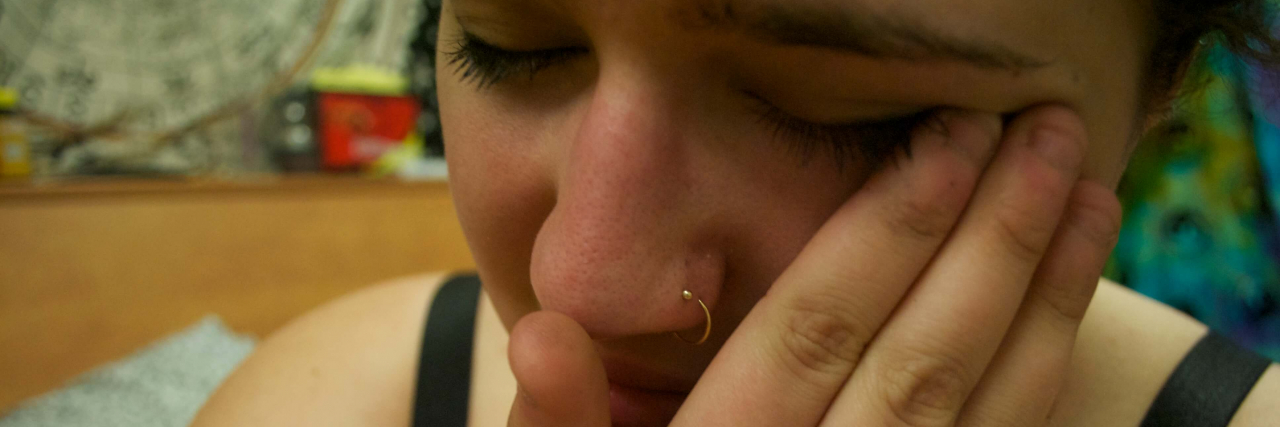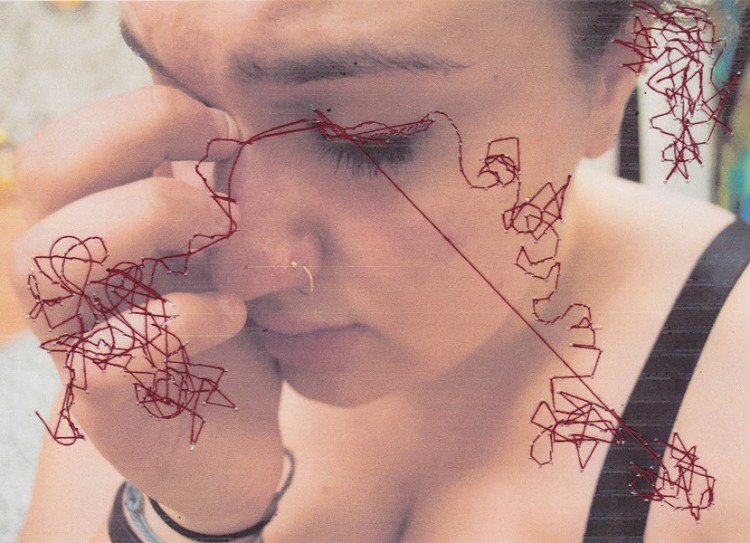I am someone who strives to be honest. And by honest, I mean sharing the bad just as much as the good, showing the ugly and not just the pretty, being unapologetically who I am and how I am feeling. I fight against the belief that social media is everyone’s “best version” of themselves. I share when I’m happy. I share when I’m depressed. I share when I’m having a good day. I share when I’m so anxious I can’t sleep. I share so that others can feel comfortable sharing their whole selves, not just the parts people like.
I’m writing today not because I have some insight to bring or experience to tell. Rather, I’m writing because today is a Bad Day. On Bad Days, I don’t often write. Bad Days mean sleeping, fighting off suicidal thoughts, keeping the tears at bay, and trying to get out of bed. Bad Days mean difficult days for the ones who love me. And I’ve realized lately that my Bad Days are only shared when I’m on the Other Side — when the fog is cleared and I’m telling people that things get better.
To me, Bad Days are only shareable when they’ve ended.
I’m stopping that now. Today, and the past couple days, have been Bad Days. I’m still in it, still waiting for it to pass, because I know it will. The hardest part is that I don’t know when. It could be tomorrow, it could be next week, it could be months. This is what chronic depression feels like.
Recently, my therapist explained to me the difference between “recurrent” depression and “chronic” depression. I was under the impression mine was recurrent — I have depressive episodes that hit me every so often, and with treatment they’ve gotten fewer and farther, but never more than three or so months without at least a small one. But that actually means that my depression is chronic, so it’s sort of the opposite — my baseline is depressed, and occasionally I’ll have breaks of time where I feel better. These can be weeks or months, but they fade away and leave me with the depression.
Chronic depression is hard. It’s knowing that the darkness is going to come back again. It’s knowing that the light is temporary. However, it’s also knowing that nothing lasts forever — the good and the bad come and go like tides. Accepting this is the key to managing chronic depression, because without acceptance, every episode is a disappointment.
So today, I’m accepting this Bad Day. Even though I feel depressed, I still got out of bed, went outside, ate food, drank water, and even wrote two blog posts. Yes, a Bad Day means constantly feeling flat, crying at every miniscule slight and worrying in the back of my head that this episode could end in a hospitalization. But a Bad Day also means hope, because the Good Days are coming.
If we don’t share these Bad Days, we’re not sharing the whole picture. We’re showing a curated picture of what our lives or our disorders look like. Honesty is so important in advocating. If we pretend like the Bad Days don’t exist, or that they’re there but we don’t show them in their entirety, who is going to understand the depths of what you’re talking about? We always hear that social media is damaging because we compare our lives to the highlight reel of others. People usually only post the good. But we can change that. With every post during a Bad Day, with every honest description of “what’s on your mind,” with even a small sentiment of the maybe-ugly truth, we can shift the online culture to be more of an authentic view of this complicated life.
Image via contributor
Follow this journey on Alyse Ruriani‘s blog.


